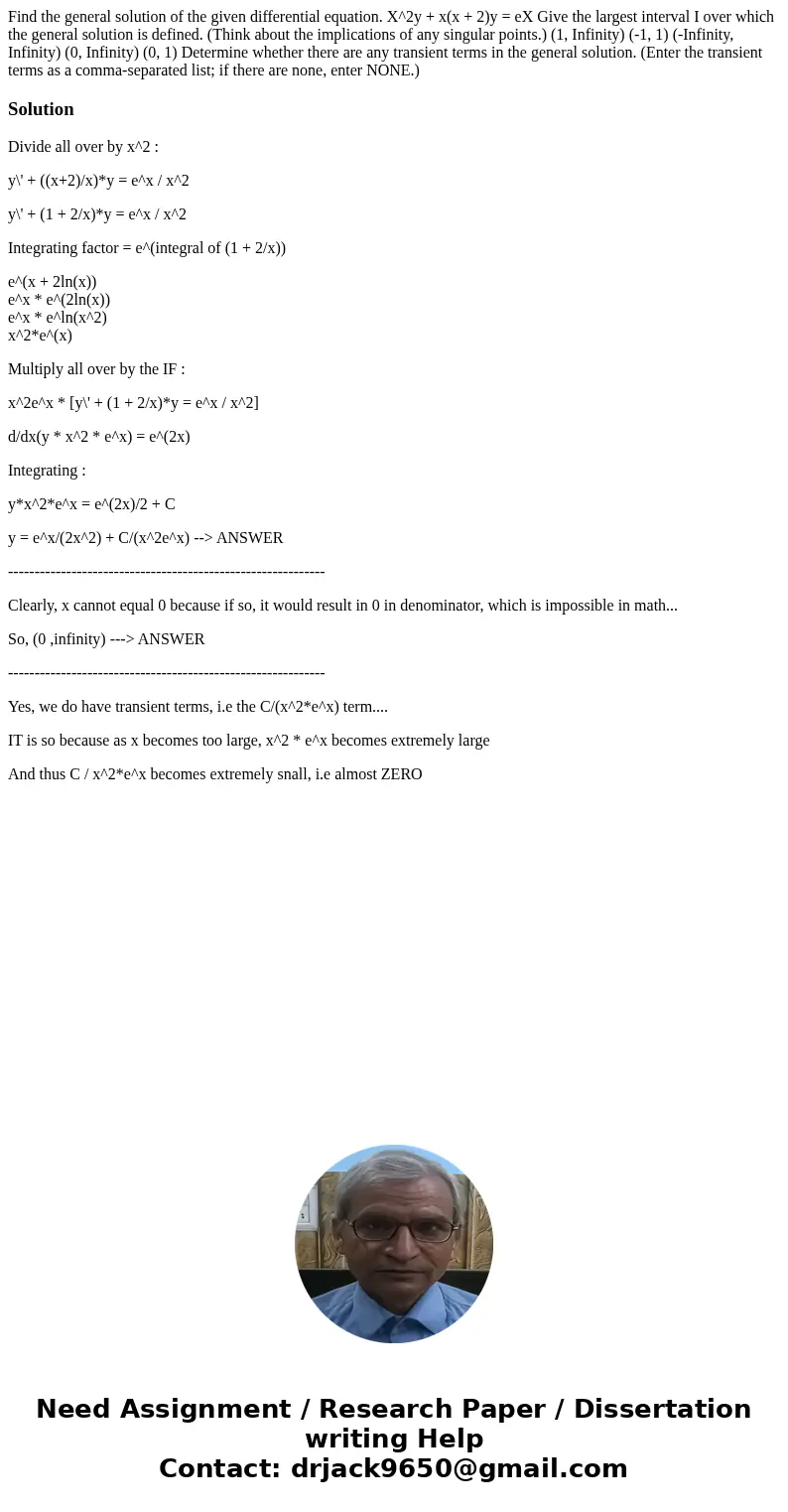Find the general solution of the given differential equation
Solution
Divide all over by x^2 :
y\' + ((x+2)/x)*y = e^x / x^2
y\' + (1 + 2/x)*y = e^x / x^2
Integrating factor = e^(integral of (1 + 2/x))
e^(x + 2ln(x))
e^x * e^(2ln(x))
e^x * e^ln(x^2)
x^2*e^(x)
Multiply all over by the IF :
x^2e^x * [y\' + (1 + 2/x)*y = e^x / x^2]
d/dx(y * x^2 * e^x) = e^(2x)
Integrating :
y*x^2*e^x = e^(2x)/2 + C
y = e^x/(2x^2) + C/(x^2e^x) --> ANSWER
------------------------------------------------------------
Clearly, x cannot equal 0 because if so, it would result in 0 in denominator, which is impossible in math...
So, (0 ,infinity) ---> ANSWER
------------------------------------------------------------
Yes, we do have transient terms, i.e the C/(x^2*e^x) term....
IT is so because as x becomes too large, x^2 * e^x becomes extremely large
And thus C / x^2*e^x becomes extremely snall, i.e almost ZERO

 Homework Sourse
Homework Sourse